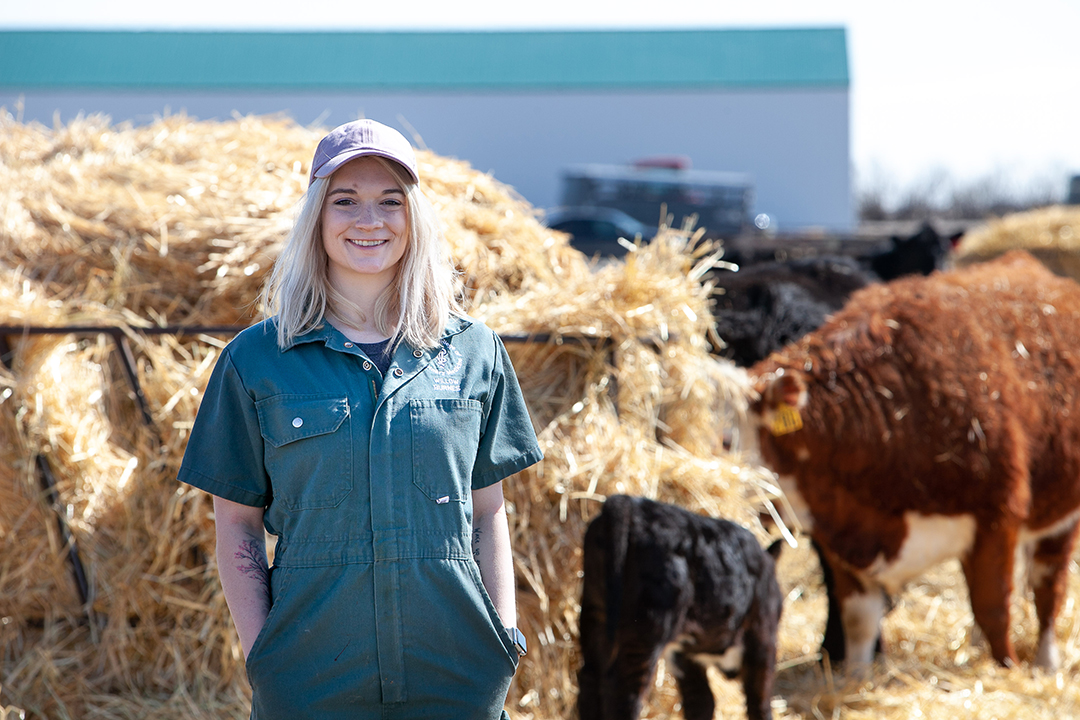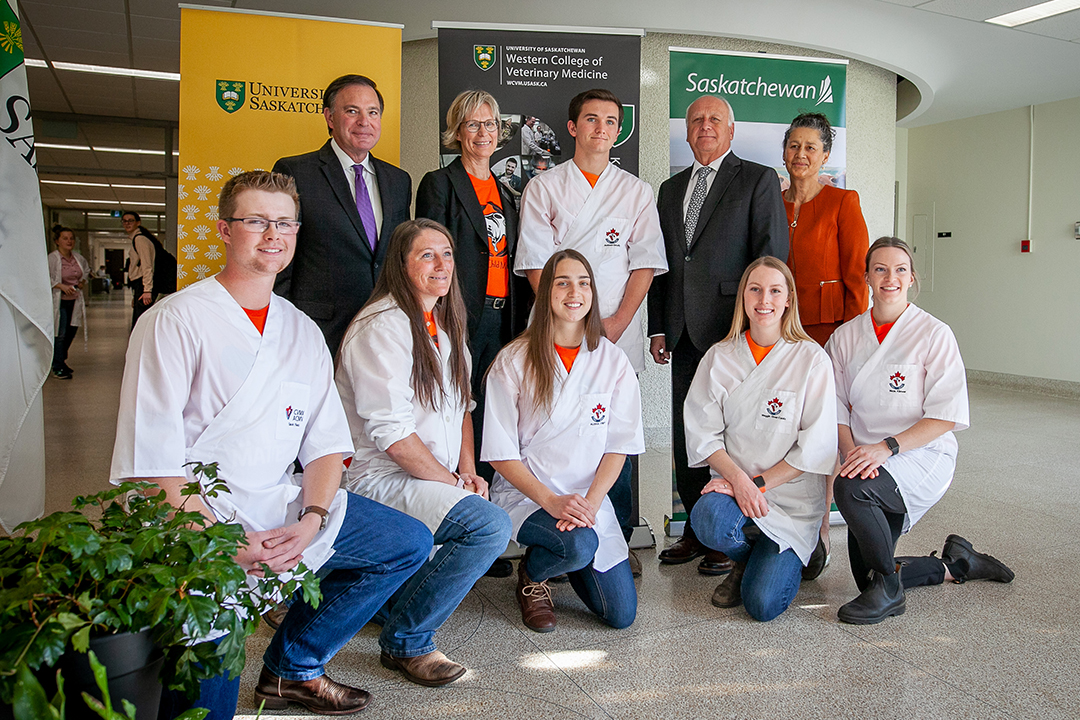
Saskatchewan and Manitoba increase funding to educate veterinarians at USask
Saskatchewan and Manitoba are addressing Western Canada’s urgent need for more veterinarians by increasing their funding to educate more students in the Western College of Veterinary Medicine’s (WCVM) Doctor of Veterinary Medicine (DVM) program at the University of Saskatchewan (USask).
By WCVM TodayDuring a news event at the WCVM on Sept. 29, Saskatchewan’s Advanced Education Minister Gordon Wyant (KC) and Agriculture Minister David Marit announced that Saskatchewan will increase its annual quota from 20 to 25 seats for the 2023/24 academic year.
On the same morning, Manitoba’s Advanced Education, Skills and Immigration Minister Jon Reyes and Agriculture Minister Derek Johnson also announced plans to add five seats to Manitoba’s annual quota for a total of 20 seats (fall 2023 entry).
“Further expanding USask’s capacity to train veterinarians will contribute to the sustainability of the profession and allow us to further enhance our leadership role in the veterinary sciences and in One Health,” said Provost and Vice-President Academic Dr. Airini (PhD).
“The increase in provincial funding is so appreciated, and it will allow us to deliver essential veterinary medical education, advance interdisciplinary collaboration and research, and amplify our contributions to the health and wellness of western Canadian communities.”
The WCVM accepts 88 veterinary students to its DVM program each year. Through the veterinary college’s Interprovincial Agreement (IPA) with Saskatchewan, Manitoba and British Columbia, each province has an annual quota of seats in the DVM program based on a cost-sharing formula.
“We welcome this commitment from our provincial partners that will help to address Western Canada’s urgent need for more veterinarians,” said WCVM Dean Dr. Gillian Muir (DVM, PhD).
“The provinces’ support allows more students from Saskatchewan and Manitoba to achieve their dreams of a career in veterinary medicine. It’s also a sound investment in protecting the health and wellness of all animals—from companion animals and wildlife to livestock that play a critical role in Canada’s agriculture industry and the country’s economy.”
Several factors—including a rapid increase in pet ownership, a rise in veterinary professionals reaching retirement age, and a limited number of graduates each year—have led to a shortage of veterinarians and registered veterinary technologists (RVTs) across Canada.
In Saskatchewan and Manitoba, the shortage is especially apparent in rural communities where veterinary clinics provide essential services for livestock producers and the agriculture industry.

“Today’s investment in additional student seats demonstrates our government’s commitment to addressing the shortage of veterinarians across the province,” said Marit. “This initiative, along with the expansion of the Saskatchewan Loan Forgiveness for Veterinarians and Veterinary Technologists, will ensure that ranchers have access to the veterinary experts they need to provide the highest level of care for their animals.”
“Animal health enables the success of our province’s agricultural industries, so investing in the training of more veterinarians, particularly those with large animal expertise, will ensure this valuable support is available when needed,” said Johnson.
During the WCVM event, several of the college’s veterinary students demonstrated their clinical skills in the BJ Hughes Centre for Clinical Learning—the college’s clinical simulation centre—for the Government of Saskatchewan representatives.
“I’m really excited for the future of veterinary medicine in Saskatchewan. I think this is a great opportunity for our province, especially with the shortage of veterinarians,” said Jackson Goudy, a second-year WCVM veterinary student from Stoughton, Sask., and president-elect of the Western Canadian Veterinary Students’ Association.
“Increasing the number of students who can attend vet school and enter the profession is the logical first step in addressing the veterinary shortage,” added Michelle Streeter, a fourth-year WCVM student who grew up in rural Manitoba.
“I am also hopeful that Manitoba’s decision to increase seats draws more students from the Prairies who are interested in working in rural mixed animal practice, since agriculture is such an integral part of so many local communities.”
Visit the Government of Saskatchewan and Government of Manitoba websites to read the provinces’ news releases.
